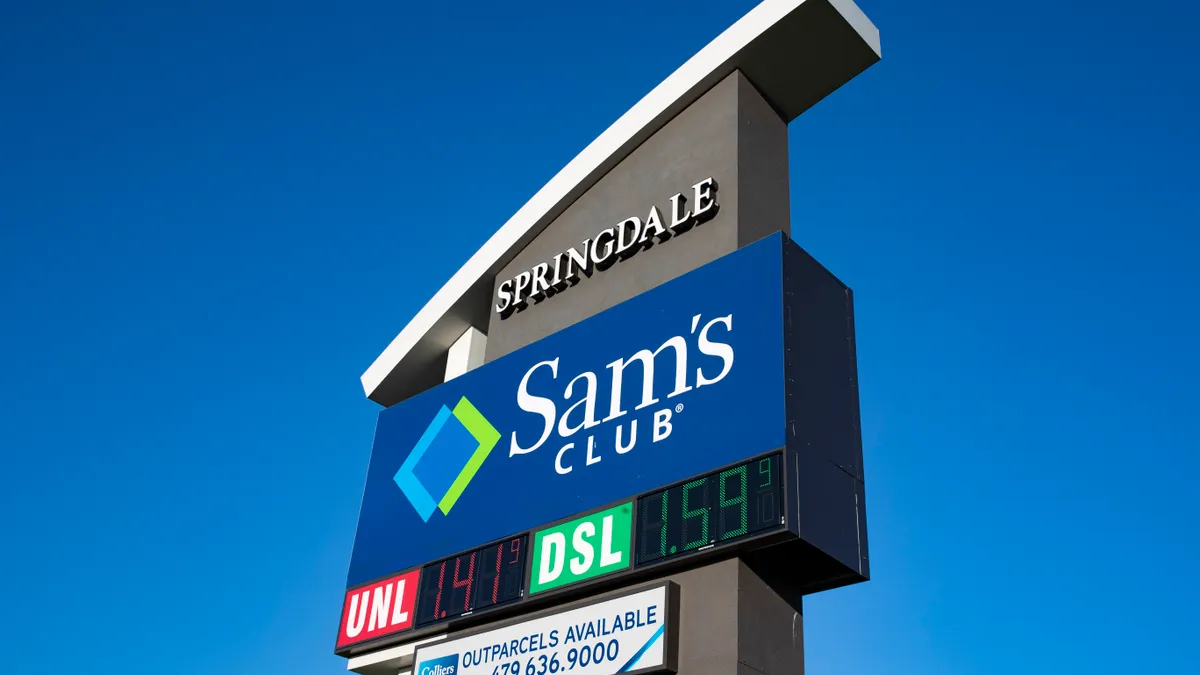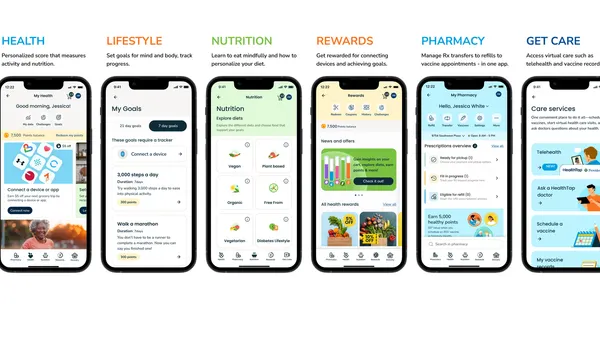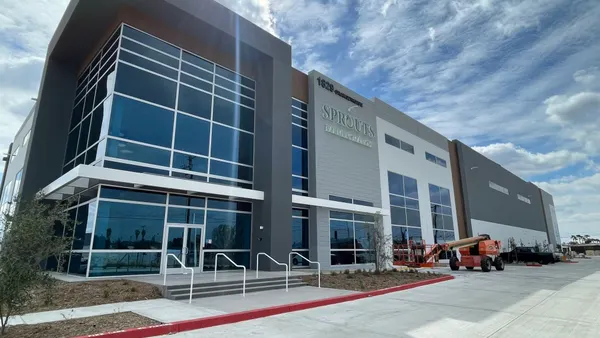Dive Brief:
- Sam’s Club announced on Tuesday new sustainability efforts, including removing certain ingredients from its Member’s Mark private label line, which spans several categories, including grocery.
- As part of the work, Sam’s Club said it will unveil a new Member’s Mark logo and design, which will include a “subtle check mark,” to further highlight to customers the club retailer’s stated focus on “people and the planet.” Shoppers can expect to see the new design on the packaging over the next 18 months.
- The move continues Sam’s Club's efforts to strengthen its private label business and work toward sustainability goals as it follows in the footsteps of parent company Walmart’s climate targets.
Dive Insight:
Sam’s Club is doubling down on having Member’s Mark include high-quality ingredients as the retailer builds on its previous sustainability and sourcing work for the private label line.
In the announcement, Sam’s Club shared the list of dozens of ingredients Sam’s Club aims to remove or replace from the line, including talc, methylparaben and formaldehyde, by 2025. The list notes Sam’s Club aims to do away with artificial flavors and certified synthetic colors by 2028.
Sam’s Club outlined 11 areas, including animal welfare, sustainable textiles and renewable sourcing, where it intends to make Member’s Mark more eco-friendly. Some of the retailer's targets set for 2025 that relate to food or packaging include:
- Have all of its animal proteins sourcing meet specific guidelines set by the retailer
- Make all of its own packaging recyclable, reusable or industrially compostable
- Achieve a 15% reduction in virgin plastic in packaging design
- Have all of its coffee, tea and cacao products be Fair Trade Certified
- Source all seafood from farms and fisheries with certifications recognized by the Global Sustainable Seafood Initiative
Sam’s Club is also calling on suppliers of Member’s Mark items to participate in Walmart’s Project Gigaton, a private sector consortium looking to reduce or avoid 1 billion metric tons of greenhouse gas emissions by 2030. It’s also looking to boost responsible sourcing and diversify its supplier base in the future.
Sam’s Club said the efforts outlined in the announcement mark the “first steps on the private brand’s journey to become a regenerative brand.” The club retailer noted it will work closely with Walmart’s sustainability team, along with the My Member’s Mark Community, which was formed in 2019 to get product input from more than 40,000 Sam’s Club members.
In recent years, Sam’s Club has put effort into making Member's Mark, which launched in 1998 and had 20 private label lines consolidated under it in 2017, a greener brand. Since 2020, the retailer has launched, refreshed and reformulated more than 1,200 items: “[A]s a result, more and more members are citing Member’s Mark products as a reason they renew their memberships,” the announcement noted.
Sam’s Club is taking a cue from its parent company. Walmart has laid out its own aggressive sustainability plan, which includes the goal of becoming a regenerative company. Last month, Walmart announced it signed up for Pacific Coast Food Waste Commitment, which aims to reduce food waste by 50% along the West Coast by 2030.
Last year, Walmart rolled out an online shopping destination to help customers find brands and products aligned with their healthy food, clean living or sustainability goals and added icons to products to identify ones that meet independent standards, like Rainforest Alliance Certified.












